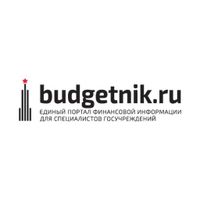In a significant legislative move, deputies from the Liberal Democratic Party of Russia (LDPR) have introduced a bill to the State Duma proposing an increase in the minimum wage (MROT) to 34,000 rubles per month, effective from January 1, 2026. This initiative, led by Yaroslav Nilov, chairman of the Committee on Social Policy, aims to enhance the financial well-being of millions of workers across the country.
The proposed legislation not only seeks to raise the monthly minimum wage but also introduces a minimum hourly wage of 300 rubles for part-time workers. Currently, the hourly wage for part-time labor is approximately 120 rubles, which underscores the substantial increase that this bill would implement.
According to Nilov, the increase is designed to ensure that Russians receive fair compensation for their labor, thereby improving their standard of living. "The adoption of the law will grant Russians the right to decent remuneration for labor and will help increase their standard of living," he stated.
The bill also includes provisions for annual indexation of the minimum wage, which will be adjusted based on the consumer price index from the previous year. This is a crucial aspect, as it ensures that the minimum wage keeps pace with inflation and the rising cost of living.
Recent forecasts from the Ministry of Finance and the Ministry of Economic Development suggest that the minimum wage could reach approximately 23,532 rubles per month by 2026, as outlined in Federal Law No. 540-FZ. This figure represents a 4.8% increase from the 2025 minimum wage of 22,440 rubles. However, the LDPR's proposed figure of 34,000 rubles is significantly higher and reflects a more ambitious approach to addressing wage issues in Russia.
As the bill progresses through legislative channels, the final decision regarding the minimum wage will be made in the second half of 2025, allowing time for further discussions and adjustments based on economic conditions.
The rationale behind increasing the minimum wage is multifaceted. It aims to improve the incomes of approximately 4.2 million workers whose salaries are tied to the minimum wage level. Additionally, it seeks to support the standard of living of citizens by increasing social payments that are calculated based on the minimum wage.
Some experts predict that if growth rates continue as they have in 2025, the minimum wage could rise to 26,000 rubles. Others suggest that aligning with the President's directive to achieve a minimum wage of 35,000 rubles by 2030 could mean a minimum wage of no less than 25,500 rubles by 2026.
The LDPR's proposal is part of a broader strategy to ensure that the minimum wage aligns with the national goal of doubling the minimum wage by 2030. This ambitious target indicates a commitment to improving the economic conditions for workers throughout Russia.
However, the proposed increases are not without challenges. The bill must navigate through the legislative process, where it will be subject to debate and potential amendments. The final minimum wage figure will depend on various factors, including economic forecasts and the political landscape as the 2025 deadline approaches.
Furthermore, the new procedure for calculating the minimum wage, which is based on 48% of the median salary, was established in Federal Law No. 548-FZ. This method will be applied for at least five years, meaning that future adjustments to the minimum wage will also take into account the median salary trends.
In addition to the proposed wage increases, there are also discussions about regional variations in minimum wage levels. Each region in Russia has the authority to set its minimum wage based on local economic conditions. Typically, regional minimum wages exceed the federal minimum, particularly in major cities like Moscow and St. Petersburg.
The consequences for employers who fail to comply with the minimum wage regulations can be severe. Penalties for violations range from 10,000 to 20,000 rubles for officials, and 30,000 to 50,000 rubles for organizations, with fines for repeated offenses reaching up to 100,000 rubles.
As the legislative process unfolds, it remains to be seen how the proposed changes will impact the lives of millions of workers in Russia. The discussions surrounding the minimum wage are not just about numbers; they represent a broader conversation about economic justice and the rights of workers in the country.
In conclusion, the LDPR's proposal to raise the minimum wage to 34,000 rubles is a bold step towards improving the financial stability of Russian workers. With the final decision expected in 2025, the future of wage policy in Russia hangs in the balance, reflecting the ongoing challenges and aspirations of the nation's workforce.





